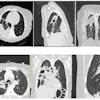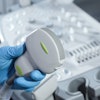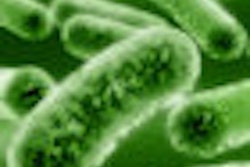Normal bacteria present in the oral cavity provide the catalyst for the development of periodontal disease, according to a study in Cell Host and Microbe (October 2011, Vol. 10:4, pp. 302-306).
Scientists from Queen Mary University of London and the University of Washington School of Dentistry introduced the oral bacterium Porphyromonas gingivalis to mice living in two different test conditions. The mice with normal bacteria in their mouths developed periodontal bone loss, but the mice raised under germ-free conditions, in the absence of any normal bacteria, remained disease-free.
When the oral bacterium P. gingivalis was introduced under normal conditions, it stimulated the growth of normal bacteria, leading to a large increase in the number of those organisms already there, noted study co-author Mike Curtis, PhD, in a press release.
"P. gingivalis was introduced at very low levels, yet it had a major affect on both the immune system and the inflammatory system," he said. "This oral bacterium only appears in small numbers but appears to have a major influence on the overall ecology. It has a keystone effect in a community -- working in the same way that starfish, which have relatively small numbers, control the shellfish communities in the sea."
More research is needed to understand the role played by normal bacteria in both the development of periodontal disease and protection from it, Curtis added.
"This may then provide the means to develop preventative measures for the disease," he concluded.



















